In honor of National Bike Month and Bike to Work Week, TIME rounded up the best U.S. cities for people who want to commute by bicycle. Many of these cycling-friendly cities have special bike lanes that are protected from traffic, and they also boast bike-sharing systems, plenty of parking spots for bikes, active bike lobbies and mayors committed to enacting policies that make bicycling safer and easier.
To find out which cities to include, TIME asked three veteran bicycle policy advocates: Andy Clarke, president of the League of American Bicyclists—believed to be the nation’s oldest bicycle advocacy organization—Jim Sayer, executive director of the Adventure Cycling Association, and Tim Blumenthal, president of PeopleForBikes.
Portland, Ore.
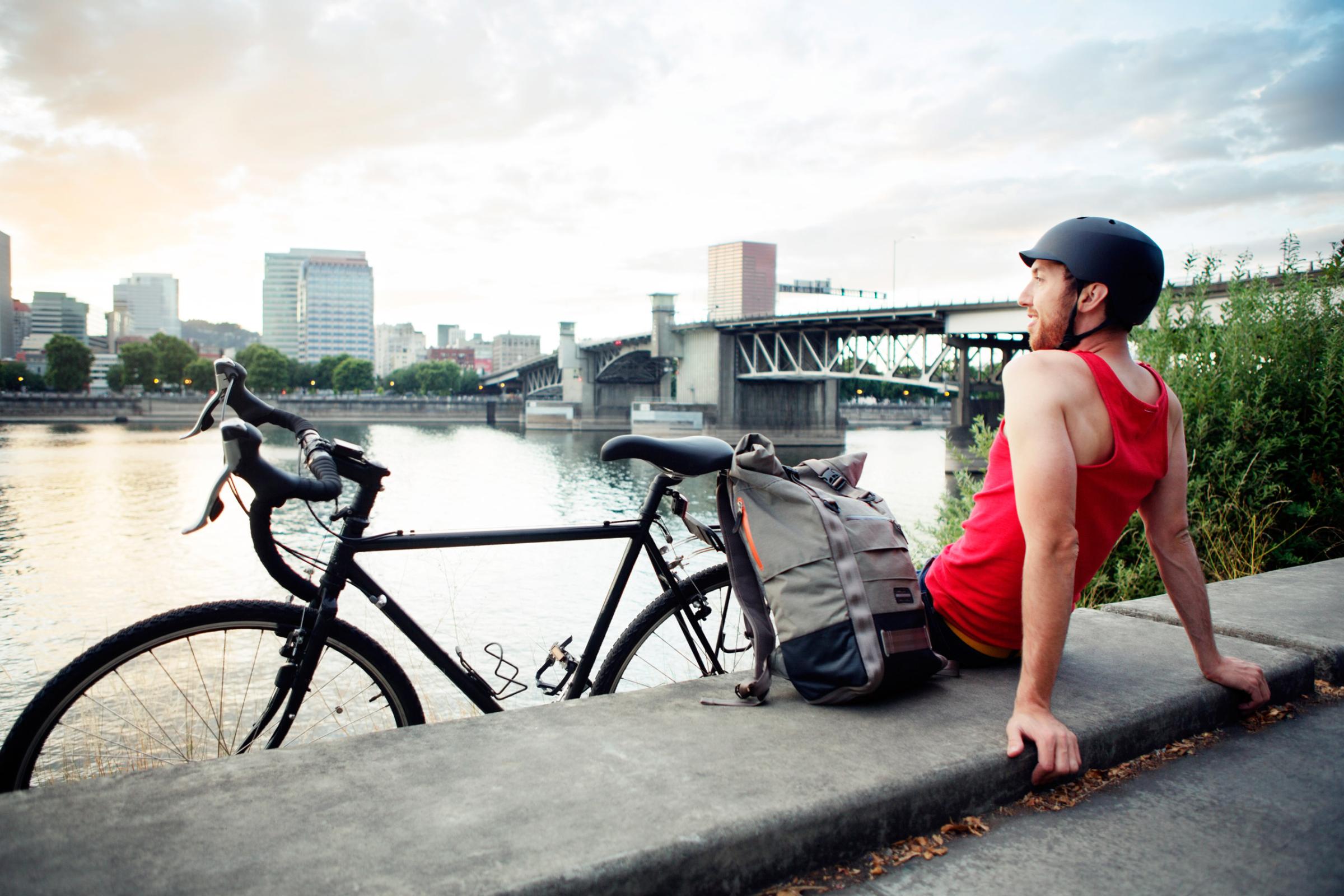
Clarke from the League of American Bicyclists praises the city with the highest percentage of bike commuters among the largest 70 U.S. cities (almost 6%) for painting bike lanes green and “reorganizing intersections” over the years to make it safe for bikers to get onto key bridges that span the Willamette River. On the Hawthorne Bridge, for example, sidewalks were made wider to accommodate bike lanes, while a running “Bicycle Counter” helps the city monitor bike traffic so it can make improvements. Sayler from the Adventure Cycling Association also points out that apartment buildings promote bike parking spots to attract residents, while local businesses do the same to draw in customers.
Washington, D.C.
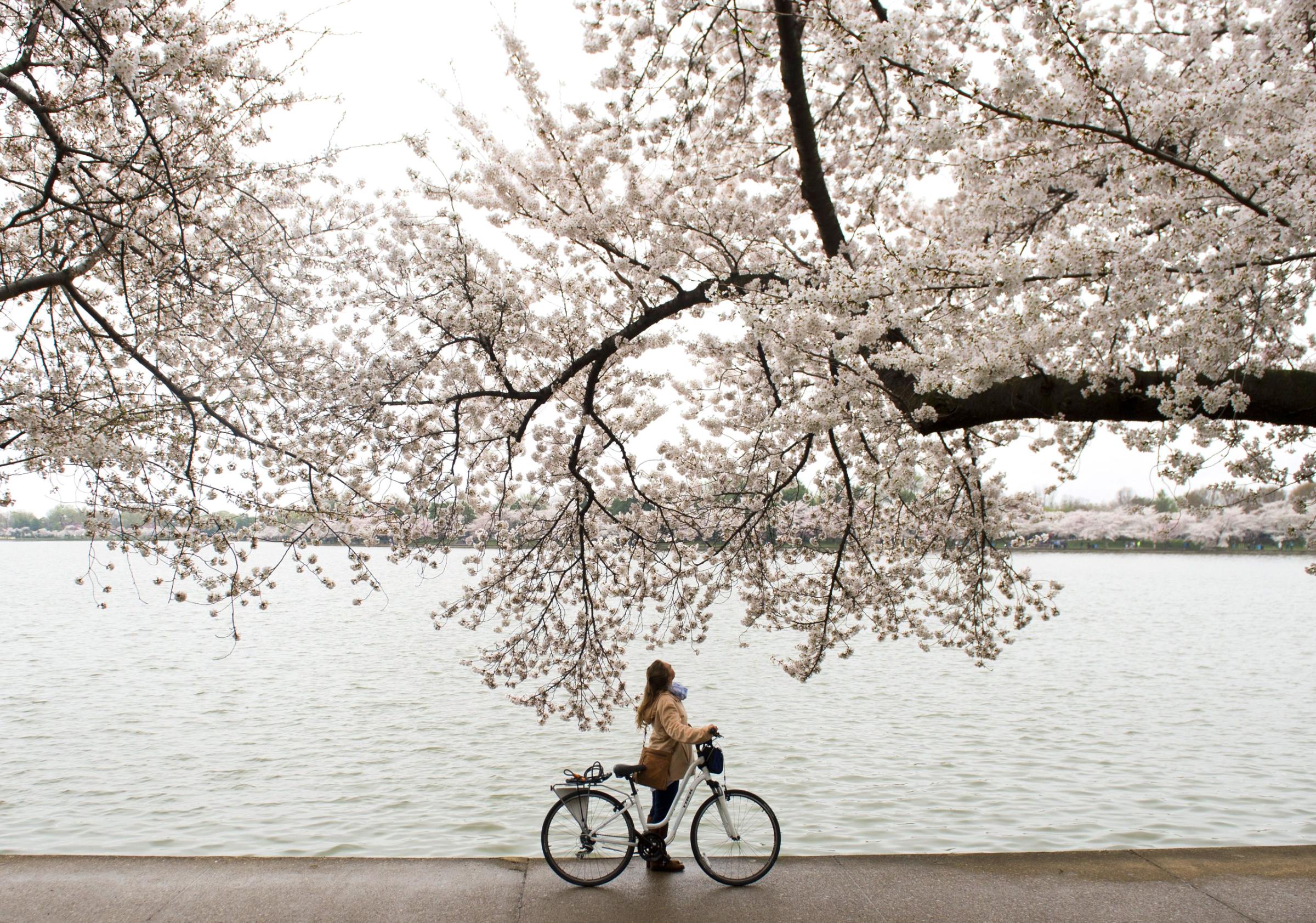
The first jurisdiction in North America to start a bike-sharing program boasts the second largest percentage of bike commuters (4.5%) among the largest 70 U.S. cities and stands out because it has made bikes easily available and installed a protected bike lane along Pennsylvania Avenue, between the White House and the Capitol, said Clarke, from the League of American Bicyclists. In fact, Capital Bikeshare station docks or corrals for returning bikes have been getting so full in downtown D.C. in the mornings that, starting this week, riders will be able to hand their bikes to attendants rather than walk until they see an open dock.
San Francisco
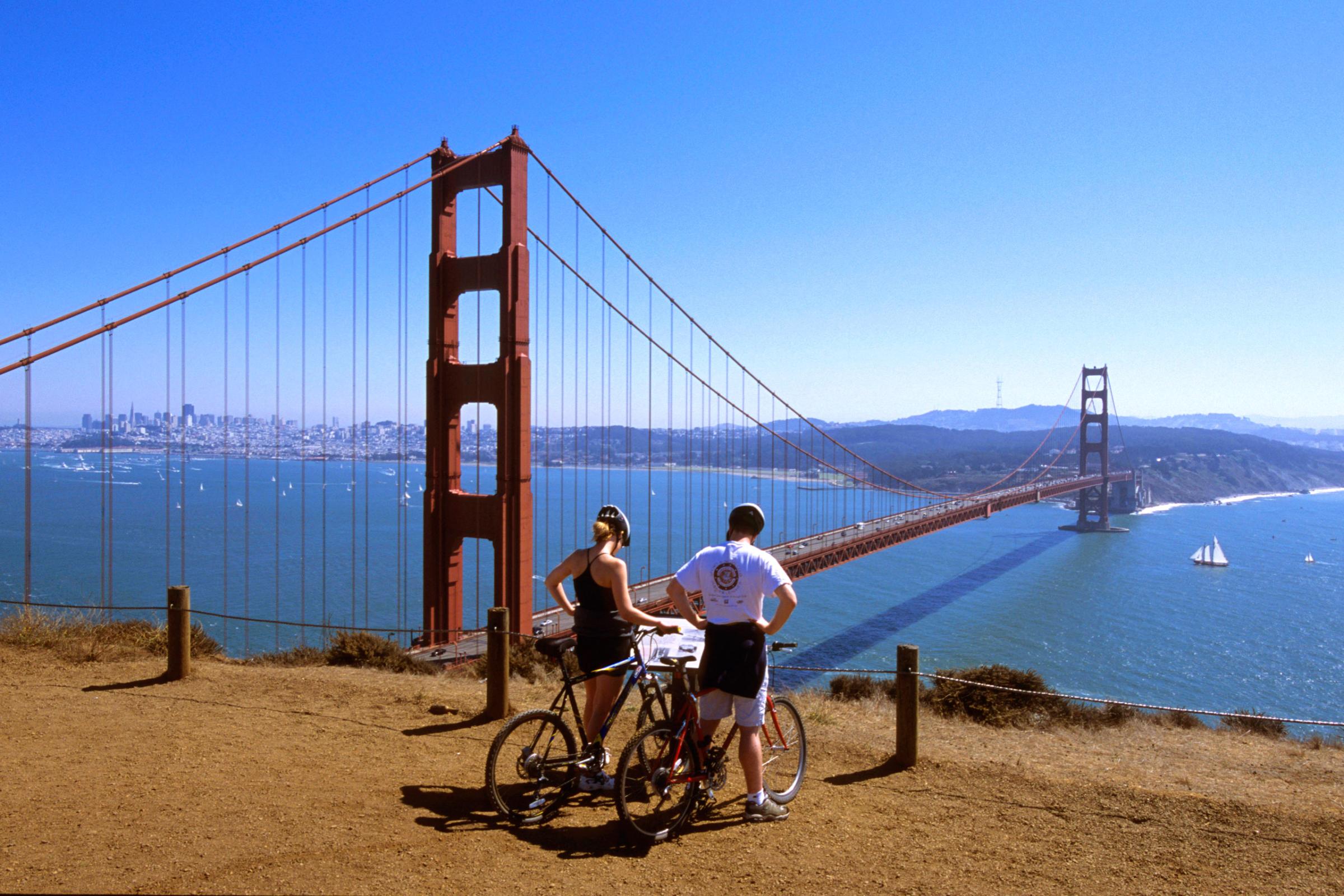
The Bay Area stands out for the way its mass transit system accommodates bicyclists, argues Sayer from the Adventure Cycling Association. Bikes are allowed on BART trains, stations have bike racks and lockers, and the Caltrain has bike cars.
Minneapolis
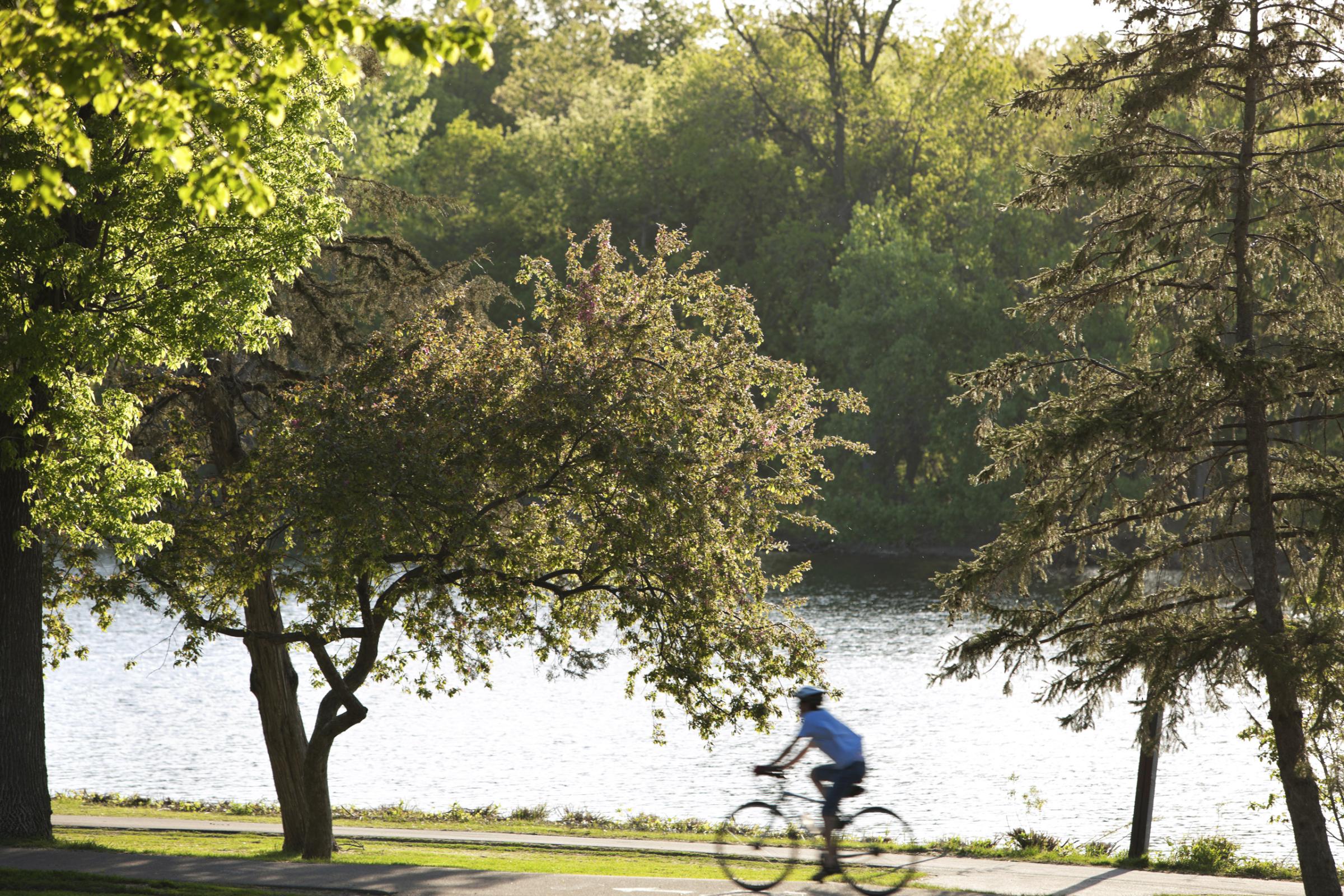
The city has “great bike paths and bike lanes that are well-marked, interconnected, and scenic,” said Blumenthal from PeopleForBikes. “One of the great ways to commute by bike in the country” is the Midtown Greenway, a former rail line that was converted into a bike path with multiple entry points and runs through the heart of the city.
Philadelphia
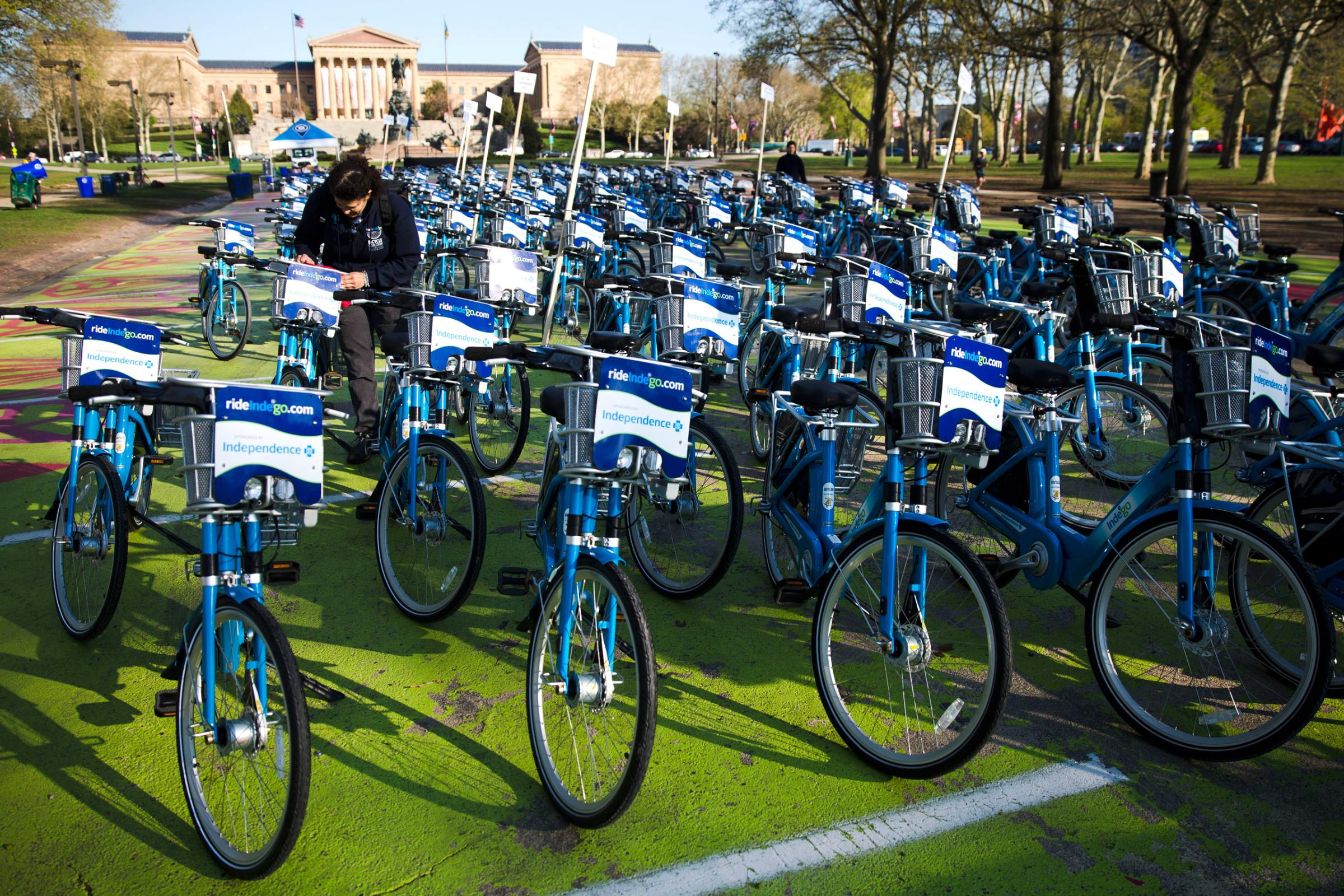
Its bike-share program just launched in April 2015, but already it is being touted as the most egalitarian one in the country because it does not require a credit or debit card to purchase a membership. “It’s serving all neighborhoods, not just the most affluent ones, making bike riding more available to people without a lot of resources,” said Blumenthal from PeopleForBikes.
Davis, Calif.
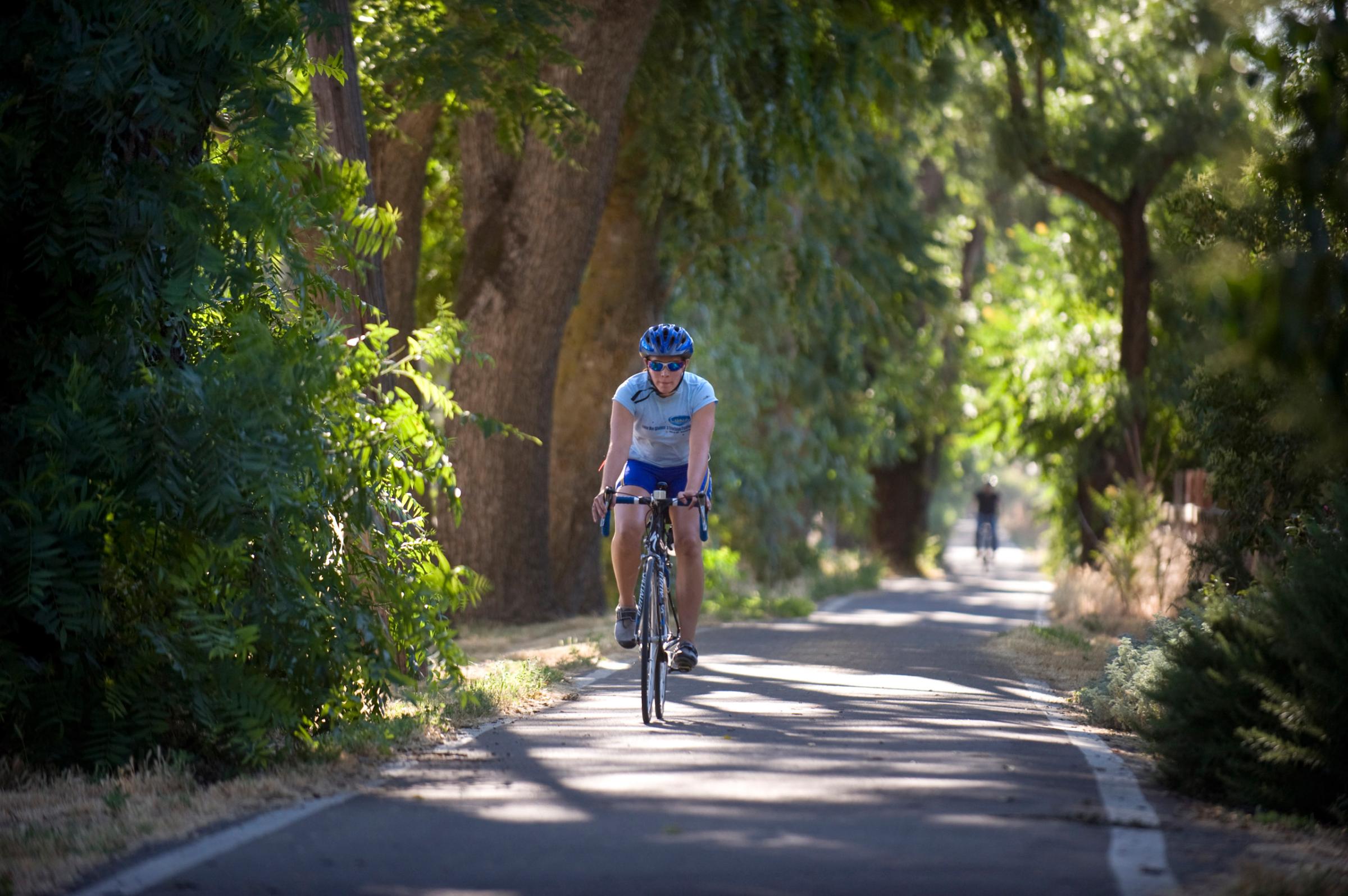
At 24.5%, the Northern California city boasts the highest percentage of residents biking to work in the country and is famous for pioneering bike lanes, which were initially implemented as an experiment in 1967. Today, the home of the United States Bicycling Hall of Fame maintains 100 miles of bike lanes and paths, and at the University of California, Davis, cars and university buses come to a halt on campus at the top of the hour to make way for all of the students and faculty members who bike to and from classes.
Boulder, Colo.
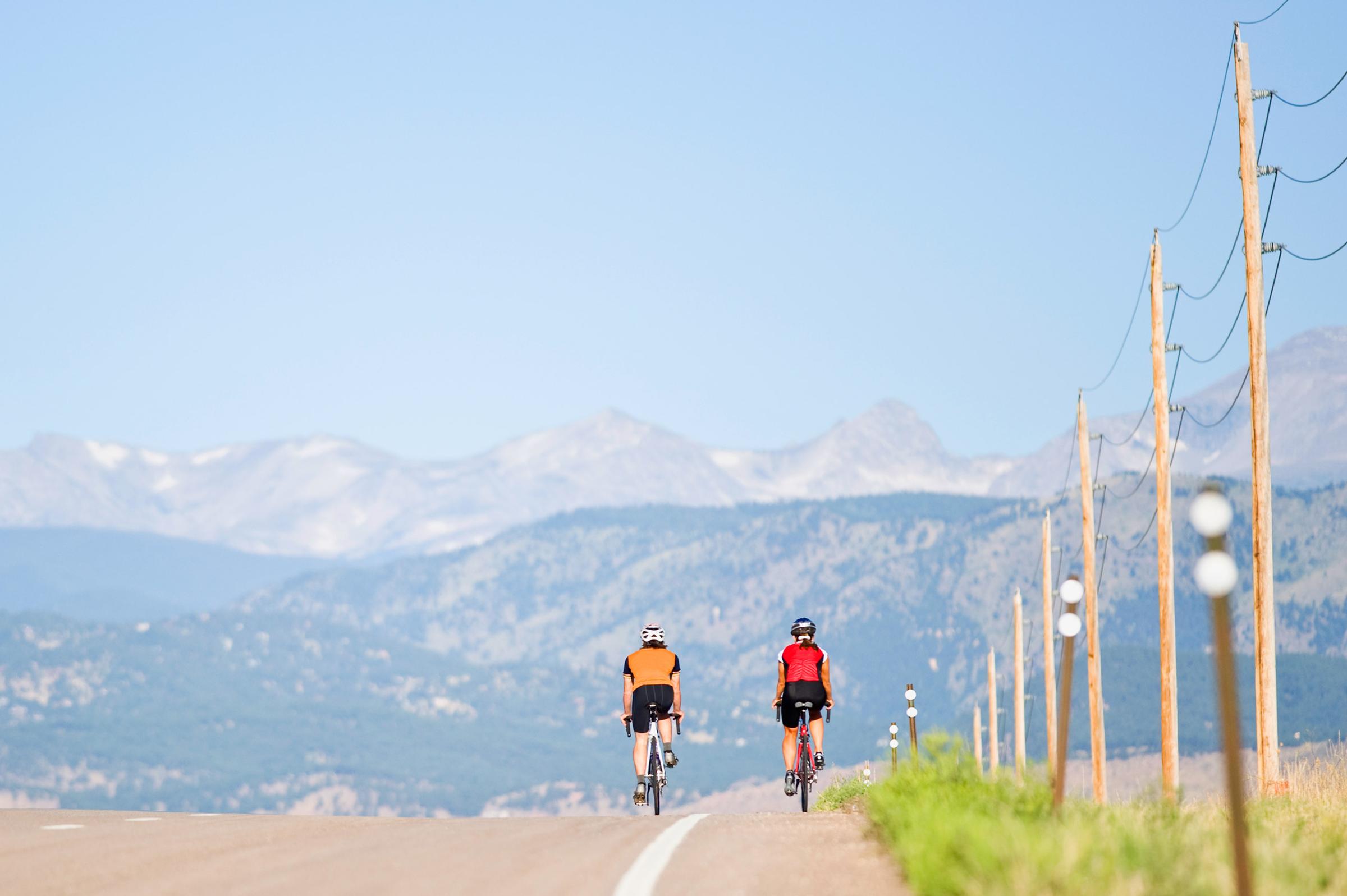
There are bike lanes with concrete curbs and 75 underpasses ideal for bikers nervous about riding next to cars. As part of a transportation policy adopted in 1989, “the city has constructed an average of one mile of off-street paths, half a mile of on-street bicycle lanes, and two underpasses each year,” according to Boulder’s website.
Seattle
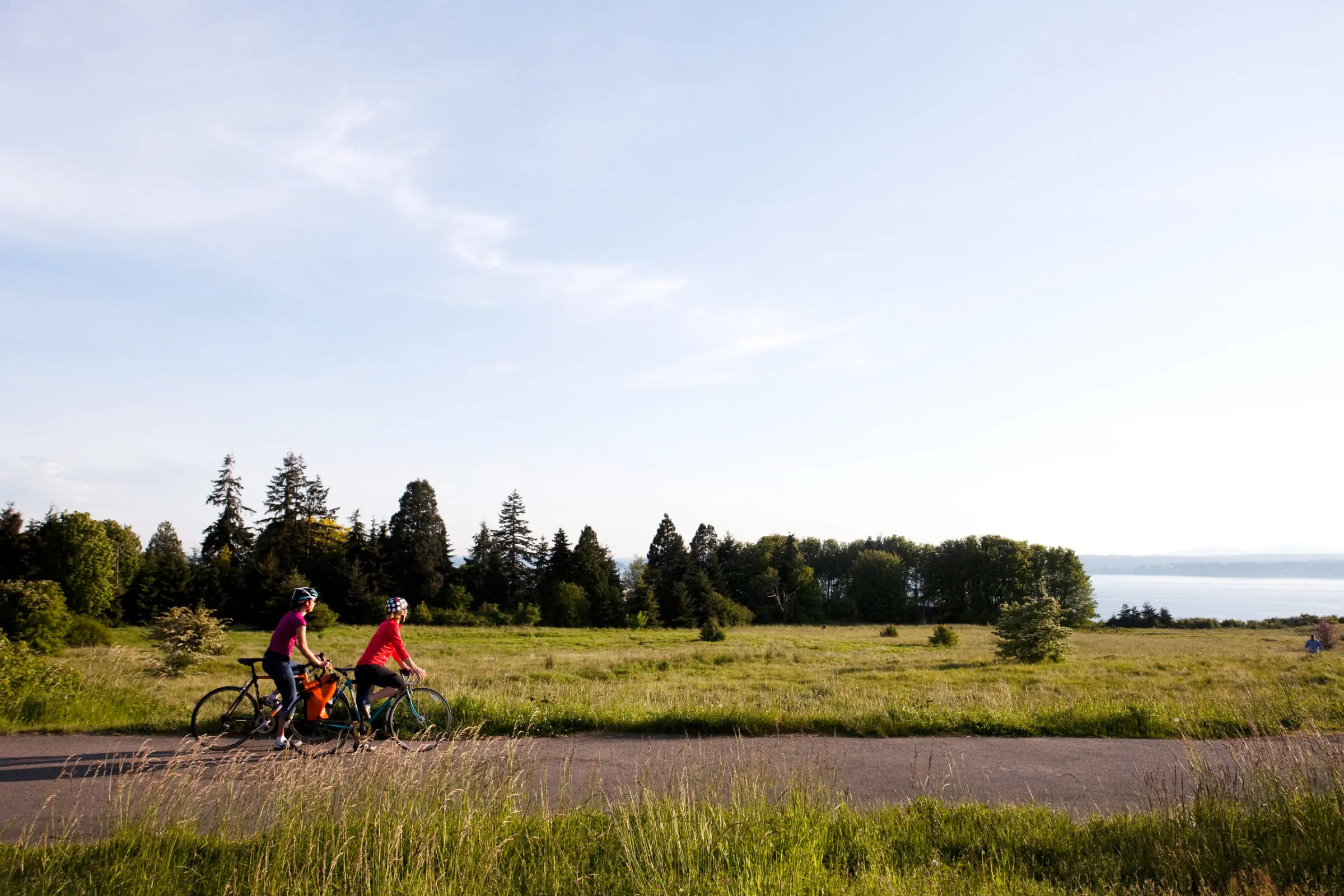
In addition to offering a bike-sharing program, Seattle also recently installed a bicycle lane on Second Avenue designated by plastic posts. These efforts, and others like harsher penalties for motorists who hit bicyclists, are said to be a result of tireless lobbying by the Seattle-based nonprofit Cascade Bicycle Club, one of the largest bicycle clubs. The club has about 16,000 members and organizes the Pacific Northwest’s top bicycling events.
Chicago
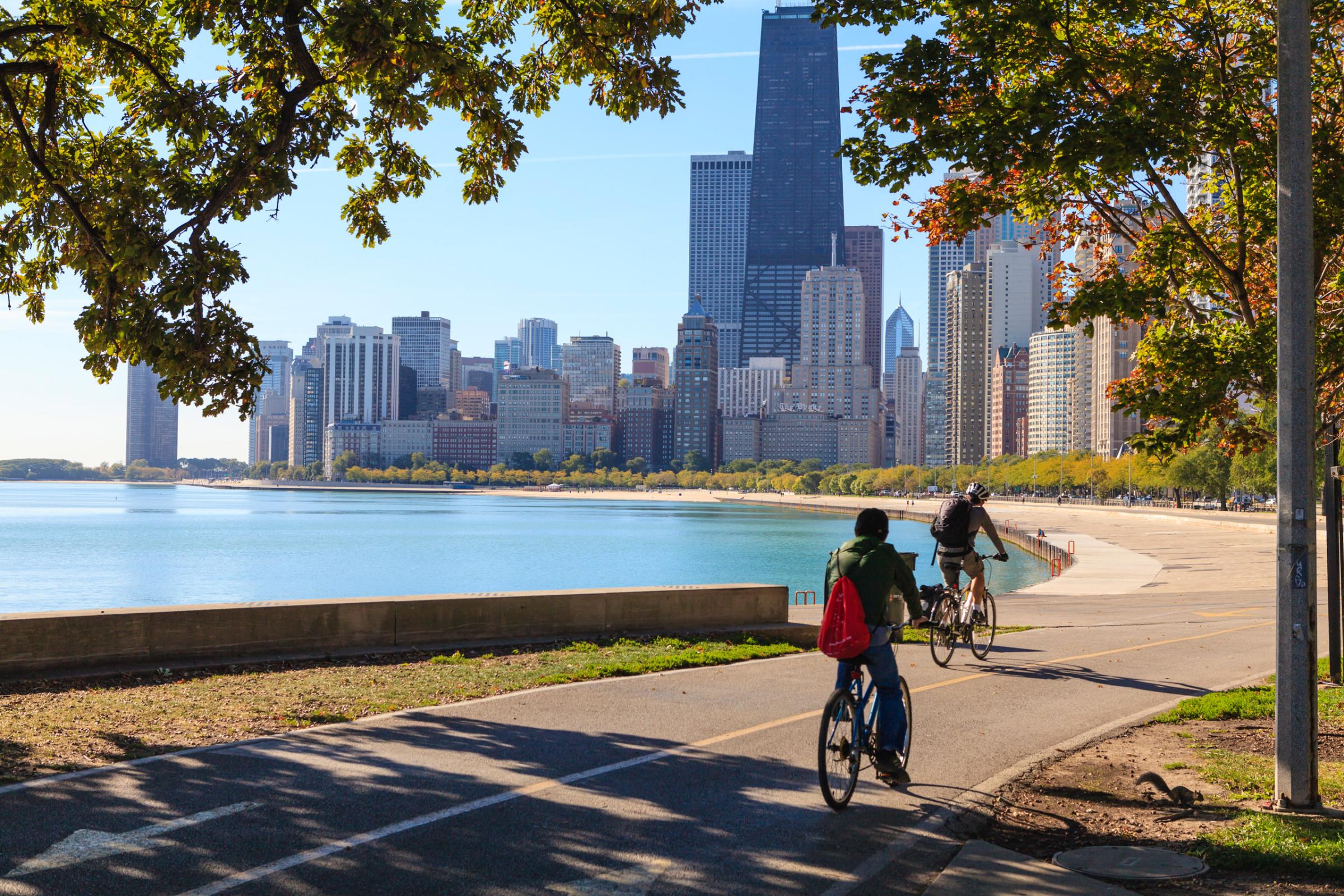
Because of Mayor Rahm Emanuel’s pledge to provide “a bicycle accommodation within [a] half-mile of every Chicagoan” by 2020, there are already 200 miles of “on-street, protected, buffered and shared bike lanes,” even in the toughest areas to bike, like the center of the city.
More Must-Reads from TIME
- Cybersecurity Experts Are Sounding the Alarm on DOGE
- Meet the 2025 Women of the Year
- The Harsh Truth About Disability Inclusion
- Why Do More Young Adults Have Cancer?
- Colman Domingo Leads With Radical Love
- How to Get Better at Doing Things Alone
- Michelle Zauner Stares Down the Darkness
Write to Olivia B. Waxman at olivia.waxman@time.com